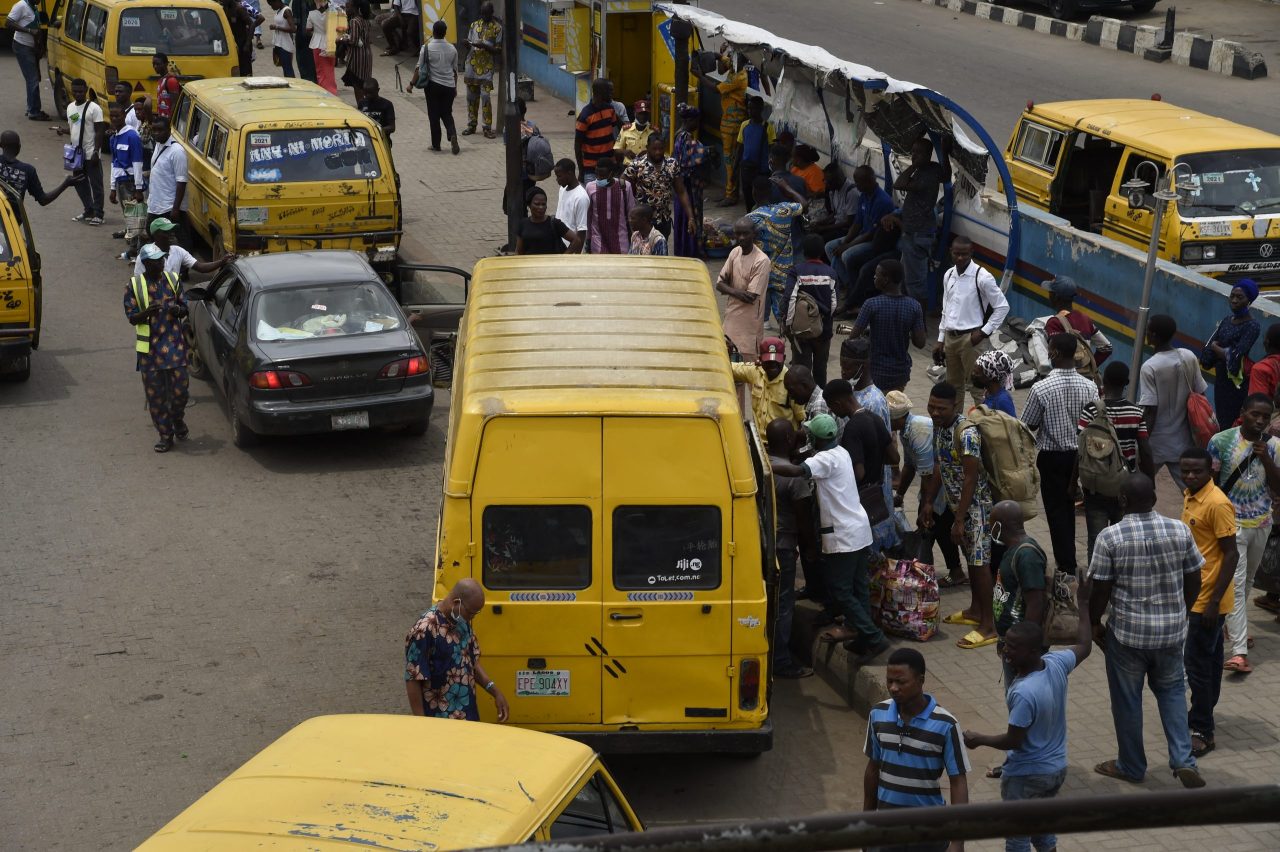
Now Nigeria’s inflation has soared to a four-year high of more than 18 percent in March 2021, with food prices up 22.9 percent, according to the National Bureau of Statistics. (Photo by PIUS UTOMI EKPEI / AFP)
World Bank said surging inflation is undermining the recovery of the Nigerian economy, pushing 7 million Nigerians into poverty and encouraging criminality as rising prices deplete already limited incomes.
In its Nigeria Development Update report, the World Bank projects economic growth of 1.8% this year, compared with a previous estimate of 1.2%. But it warned that without deep reforms, the economy will continue to grow slower than the pace of population expansion of about 2.6% a year.
However, the projection coupled with rising unemployment and inflation, World Bank said, is leading more Nigerians into criminal enterprises to make up for lost earnings in the continent’s top oil producer.
In a related document published in January the Washington-based lender said population growth and the effects of the COVID-19 pandemic will push about 10 million people in the West African nation into poverty by 2022. Despite this, Nigeria’s President Muhammadu Buhari said in a June 12 speech that his government has taken 1.5 million out of poverty in the last two years and that the government aimed to lift 10 million out of poverty in 10 years.
He also described his administration’s measure to curb the spread and mitigate the effects of the virus in the country as “successful”.
World Bank stated that a surge in insecurity over the past two years has further slowed economic activity and left more people unemployed, fueling a vicious cycle of violence and criminality.
“While you have many people going into the informal sector and hustling, criminal activity has become one of the options to get by,” the World Bank’s country director for Nigeria, Shubham Chaudhuri, said in an interview. “In the context of rising inflation, that means a further deterioration of the purchasing power and livelihood of many Nigerians.”
Chaudhuri reiterated that the government must develop a sustainable economic recovery plan before the bank can release a $1.5 billion loan initially discussed more than a year ago.
While inflation eased slightly for the second straight month to 17.9% in May, it remains at near four-year highs with food-price growth at more than 20% year-on-year. The World Bank sees inflation at an average of 16.5% this year and remaining above the 9% top of the target band until at least 2023.
The World Bank challenged the central bank’s position that high inflation stems primarily from supply constraints, citing tight exchange-rate controls and expansive monetary policy as key drivers of price growth.
“Policy decisions related to the exchange rate, trade, and monetary and fiscal factors are driving inflation, especially during 2021, more so than exogenous factors related to conflict and weather shocks,” said Marco Hernandez, the World Bank’s chief economist for the country.
The lack of a credible monetary anchor is keeping inflation elevated, with the central bank trying to achieve too many goals, such as controlling price increases, promoting economic growth, and keeping a stable exchange rate, according to the report.
Although the central bank has taken a step to unify the official exchange rate with one used by investors and exporters, the exchange rate is not yet reflective of market forces, the World Bank said.
The World Bank urged Nigeria’s central bank to aim for greater flexibility by reestablishing a dollar interbank market, effectively allowing banks to trade currency on their own behalf to increase liquidity and move toward a single rate.
Nigeria’s inflation rate on Tuesday dropped further for the second consecutive month to stand at 17.93% in May 2021 from 18.12% recorded in April 2021, according to the Consumer Price Index report released by the National Bureau of Statistics (NBS).
According to the report, the consumer price index, (CPI) which measures the inflation rate increased by 17.93% (year-on-year) in May 2021. This is 0.19% points lower than the rate recorded in April 2021 (18.12%).
The closely watched index dropped from 22.72% recorded in April 2021 to 22.28% in May 2021, indicating the second consecutive decline in the food index.
On a month-on-month basis, the food sub-index increased by 1.05% in May 2021, up by 0.06% points from 0.99% recorded in April 2021.
This rise in the food index was caused by increases in prices of Bread, Cereals, Milk, Cheese, Eggs, Fish, Soft drinks, Coffee, Tea and Cocoa, Fruits, Meat, Oils and fats, and Vegetables.
[ad unit=2]



